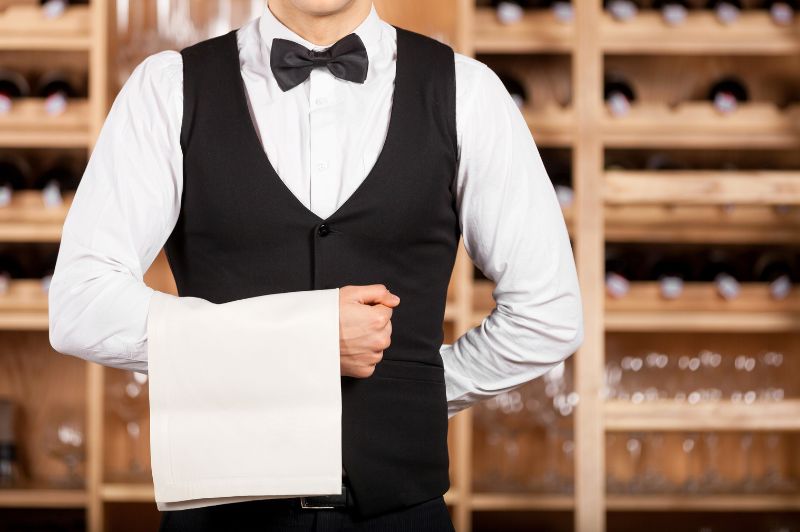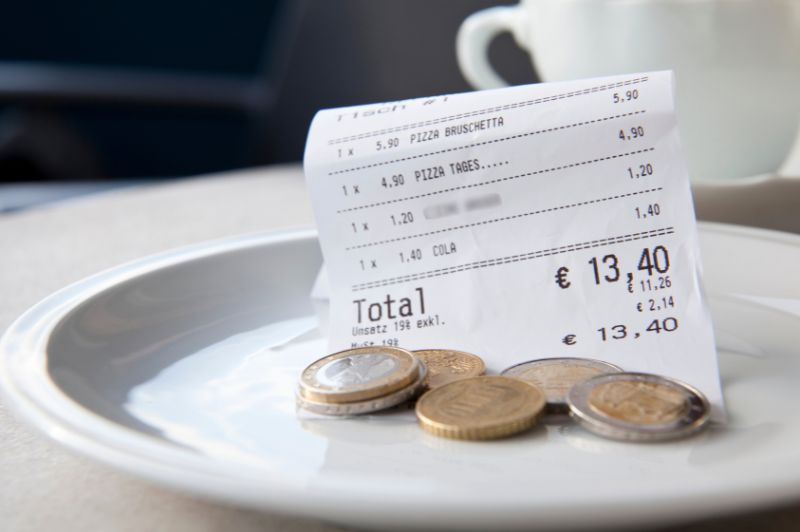The How Much Should You Really Tip in Paris ?
Of all the Paris travel questions that spark heated debate online, tipping might be the most divisive. You’ll find endless threads packed with conflicting advice, cultural lectures, and strong opinions, especially when Americans get involved.
Some locals roll their eyes at the very question. Others patiently explain the nuances. And a few servers weigh in with their own real-world experience.
The result? A mess of mixed messages that only makes things more confusing for travelers.
So here’s a clear breakdown of what tipping in Paris really looks like, based entirely on what Parisians, expats, frequent travelers, and service workers themselves have shared.
The Law: Service Is Included
In France, tipping isn’t mandatory. It’s not built into the culture the way it is in the United States. That’s because French law requires all restaurant bills to include service charges.
The phrase “service compris” on the receipt means exactly that: the price you see is the final price, and no additional tip is needed.
Servers receive a fixed wage, unlike in the U.S. where tips make up the majority of a server’s income. This legal structure is meant to remove pressure from diners and ensure fair pay regardless of customer generosity.
But Do People Tip Anyway?
Yes, just not in the way visitors might expect. Many locals and regulars leave small tips when the service is friendly, the meal enjoyable, or they’ve stayed a while. Think 1 or 2 euros left on the table.
Some round up to the nearest euro or leave the coins from their change. But no one’s pulling out a calculator to figure out 20%.
For some families, it’s simply habit. One commenter noted that their grandfather always left a bit of change, even for a coffee. Others said they only tip occasionally when they feel the service deserved a little something extra.
At more upscale restaurants, especially in central Paris, tips may be more common – but they’re still modest. A few euros on a €100+ bill, maybe a bit more if the experience was exceptional.
No one is tipping 15 – 25% unless they’re unfamiliar with French norms.
The Tourist Trap Effect

Many tourists, especially Americans, have reported moments where they felt pressured to tip. This usually happens in highly touristed areas or in restaurants that actively target foreign clientele.
Some diners were explicitly asked if they wanted to tip 10% or 20%. Others were handed credit card terminals with tipping options already selected.
This shift is largely blamed on modern point-of-sale systems like Square which became widespread during COVID. These machines often default to tip prompts and the company itself typically takes a small cut of each tip.
That system, aka “tipflation,” is viewed with suspicion and frustration by many locals.
Multiple people mention that waiters seem to “profile” customers. French-speaking diners are handed the machine with no tip screen. English speakers, especially those with American accents, often get the full tip-prompt routine.
What Locals Think About It
Across the board, French residents, including many Parisians, say they don’t want American tipping culture creeping into France. They believe that everyone deserves fair pay from their employer, not from customers.
Some say tipping culture depresses wages and shifts the burden from business owners onto diners. Others are more neutral and see tipping as a nice gesture if someone went out of their way.
However, most locals strongly push back on turning that into an expectation. One Parisian sums it up this way: “Tips are a way to say thanks, not a requirement. Don’t tip because you feel you have to, tip because you genuinely want to.”
Others were more blunt: “Stop tipping and they stop asking.”
How Are Tips Shared?
In some restaurants, tips are pooled and distributed at the end of the week or month. In others, especially smaller venues or bars, servers may keep their own. Tips are often subject to internal policies and, in larger restaurants, must be reported and taxed.
Some workers mention that if a customer gives a tip directly into the waiter’s hand, they might get to keep it. If it’s left on the table, it’s often pooled. But rules differ from place to place, and enforcement can be inconsistent.
Still, many waiters say that tip, no matter how small, do make a difference. Especially for part-time staff or students working long hours on their feet. That’s why the phrase “pourboire” (literally “for a drink”) still carries weight, even if the system isn’t built on it.
Don’t Be Pressured
If you’re ever asked directly to tip, especially in a pushy or uncomfortable way, you’re well within your rights to say no.
Some recommend pointing out that it’s illegal to demand tips, and you can report such incidents to the French government’s fraud site: signal.conso.gouv.fr.
These moments are the exception though, not the rule. Most Paris restaurants won’t even mention tipping. And in places where tipping isn’t possible, like when using Apple Pay, nothing will be said.
Regional Differences
It’s worth noting that tipping habits vary across France. In the north – Paris, Lille, Normandy – it’s rare and minimal. In the south or Corsica, it’s more common to leave a few euros out of politeness, especially in family-run restaurants.
But even there, tipping is still seen as optional, not essential.
What Should You Do?
There’s no single answer. Many locals advise leaving €1 – 2 if you enjoyed your meal and the service felt warm or helpful.
If the server gave you directions, spoke multiple languages to help you out, or made your visit easier in some way, a small tip is a nice thank you.
If you didn’t enjoy the service, or if it felt impersonal or rushed, it’s perfectly fine to leave nothing. No one will chase you down the street. And if someone does try to pressure you, you’re not the one in the wrong.
Tipping in Paris is a personal choice. It’s not part of the structure of dining out, but it still exists as a small, polite gesture. Think of it like holding the door open for someone: it’s appreciated, but not expected.

